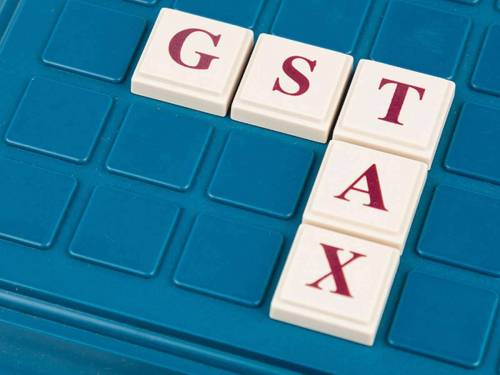No GST on electricity charges recovered from tenants
The ruling came after Gujarat Narmada Valley Fertilizers & Chemicals Ltd approached Gujarat AAR to determine whether the electricity fee paid by the owner to th
- by B2B Desk 2021-01-22 06:12:35
In an important ruling of the Gujarat Authority for prejudice to GST stated that the landlord is not obliged to pay GST on electricity or incidental fees recovered from tenants, in addition to the rent according to the lease for the rental of real estate because The said amount will not be included in the Offer value.
The ruling came after Gujarat Narmada Valley Fertilizers & Chemicals Ltd approached Gujarat AAR to determine whether the electricity fee paid by the owner to the electricity supply company to deliver the electricity on behalf of the owner and which was recovered is based on the sub meters of different tenants. it should be considered as a refund from the tenant's exclusive agent.

The goods and services tax (GST) is based on the concept of "pure agent", according to which if you incur expenses when providing a service to your client, when all the stipulated conditions are met, you do not need to pay any GST in the amount you recover in addition to your fees as a Pure agent.
For example, if the real estate dealer charges you for proposing the property, but also charges you some extra money in exchange for doing the legal work of paying legal fees. In this case, if the real estate trader qualifies to be your pure agent by paying legal fees, then the GST will be applied only on their fees (the commission for finding the property) and not on legal fees incurred on their behalf as pure agent.
In its AAR Gujarat ruling, “The applicant has imposed on the tenant the burden of paying the fees in respect of the electric power used by them directly to the electric company; It cannot be said that the electricity rate will be covered by Sec. 15 (2) (c) of the CGST Act 2017 For the sole reason, the rental rate of the buildings has been set at an amount and that the rate of Electricity must be assumed by the tenant according to the actual use of electric energy by them in terms of the agreement ".
AAR went on to state that when calculating the GST, electricity will not be included in the rental value only when the lease clearly states that the tenant will incur electricity charges above the actual values and that the rent is only the fixed amount agreed. stay on the property.
Consequently, said amount will not be included in the value of the supply; the decision will apply to a specific agreement where the terms of the agreement are specific so that the tenant assumes the electricity costs in real numbers and the value of the rent. Real estate is a fixed amount that becomes the value of the offer in terms of legal provisions.
Gujarat AAR also found that the applicant qualifies as a pure agent. "The electricity charges charged by the owner to the tenant are covered by the real numbers based on the reading of the sub-meters under the amount recovered as a pure agent in terms of the provisions of Rule 33 of the CGST Rules, 2017 at relationship with the landlord - the decision will only apply in relation to the agreement under discussion and not. The analogy applies to this decision in a variety of circumstances."
According to Harpreet Singh, Partner, Indirect Taxes, KPMG India, while the ruling authority has held that the decision applies only in relation to the deal under consideration, this decision still has broad implications, and the deal is generally similar when the owner obtains Returns the fixed rent AND the electricity is effectively recovered. "Hopefully this ruling is wise enough to attract the attention of taxpayers and authorities, as the rationale for not applying the GST to electricity seems compelling," Singh adds.
Also Read: 7 home loan strategies for first-time borrowers
POPULAR POSTS
GST 2.0 Rollout Begins: New 5% & 18% Tax Slabs, Cheaper Essentials, and Helpline 1915 Explain
by Shan, 2025-09-22 10:20:19
GST Overhaul Explained: New 5% and 18% Slabs, 40% Tax on Luxury Goods
by Shan, 2025-09-04 11:53:34
Modi’s Diwali Gift: New GST Rates Slash Prices on Electronics, FMCG & More
by Shan, 2025-08-21 12:28:30
Jio Finance Launches Income Tax Filing at ₹24: How to File ITR Easily in 2025
by Shan, 2025-08-13 10:08:52
Income Tax Bill 2025: Lok Sabha Panel Backs Deductions for Late Filers
by Shan, 2025-07-22 12:28:58
Karnataka GST Crackdown: Why Shopkeepers Are Ditching UPI Payments
by Shan, 2025-07-16 12:14:56
GST Council Likely to Consider Lowering Tax on Online Food Delivery Fees
by B2B Desk, 2024-12-17 08:26:30
RECENTLY PUBLISHED

Loan EMIs to Drop as RBI Slashes Repo Rate - Full MPC December 2025 Highlights
- by Shan, 2025-12-05 11:49:44

Pine Labs IPO 2025: Listing Date, Grey Market Premium, and Expert Outlook
- by Shan, 2025-11-05 09:57:07

The Agentic Revolution: Why Salesforce Is Betting Its Future on AI Agents
- by Shan, 2025-11-05 10:29:23

Top 10 Insurance Companies in India 2026: Life, Health, and General Insurance Leaders Explained
- by Shan, 2025-10-30 10:06:42

OpenAI Offers ChatGPT Go Free in India: What’s Behind This Big AI Giveaway?
- by Shan, 2025-10-28 12:19:11

Best Silver Investment Platforms for 2025: From CFDs to Digital Vaults Explained
- by Shan, 2025-10-23 12:22:46




 Subscribe now
Subscribe now 